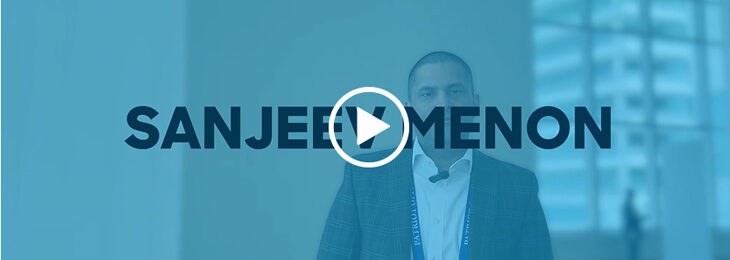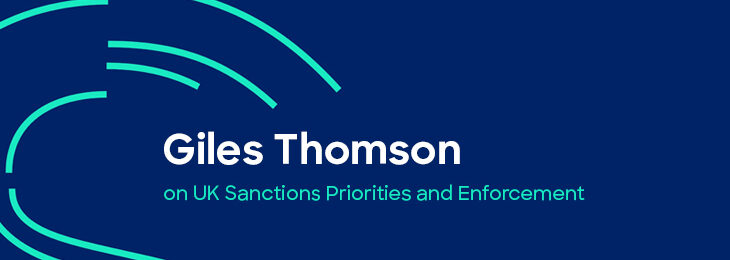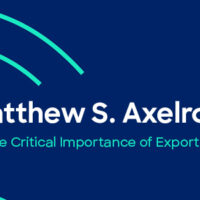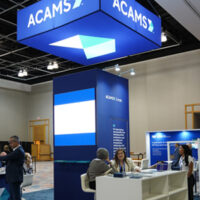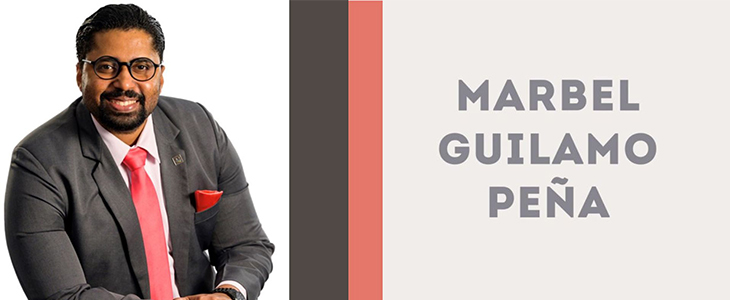
Anti-financial crime (AFC) guru Marbel Guilamo Peña, who has 20 years of experience in banking, is the manager of the Ethical Compliance, Anti-Bribery and Anti-Corruption Division at Banco de Reservas (Banreservas). His work has contributed significantly to the areas of banking regulation, compliance operations, corporate governance, ethical processes and process management, among other topics. Guilamo Peña is a member of the Compliance Committee for CoopReservas and the Editorial Committee for ACAMS Today Español Digital. He is well regarded for his efforts in training executives and employees of Banreservas in banking regulation, the Foreign Account Tax Compliance Act and the prevention of asset laundering.
Question 1: What have been the greatest changes you have seen in the anti-corruption field? How do you recommend professionals and financial institutions (FIs) stay up-to-date on the latest anti-corruption methodologies?
Marbel Guilamo Peña (MGP): Among the changes that have been witnessed in anti-corruption, we can highlight the mechanisms that have been implemented to monitor and follow up with alerts in a timely manner. These mechanisms allow us to categorize them in statistical models and be supported by different applications and databases for their proper functioning and understanding. I recommend that professionals and FIs keep themselves updated on the latest anti-corruption methodologies by:
- Participating in specialized anti-corruption training and/or education programs
- Following updates to laws and regulations related to mechanisms for preventing and combating corruption
- Keeping up with publications issued by international organizations and experts in the anti-corruption field
- Using technological tools and digital platforms that provide updated information on anti-corruption mechanisms and methodologies
Question 2: What do you recommend to professionals and FIs that are interested in using digital tools for enhancing compliance?
MGP: Dynamic, agile and wide-ranging technological tools are required to properly prevent, mitigate and punish corruption. Certain tools use artificial intelligence to perceive patterns and behaviors of human conduct, generating alerts on suspicious behavior. However, an exhaustive evaluation of the user’s needs and specific objectives must be performed before selecting those tools, and their effectiveness must be continuously monitored. It is important to emphasize that digital tools offer great help and support, but they do not replace the need for a comprehensive and human approach to comply with regulations and standards.
Question 3: Latin America is doing worse than a decade ago when it comes to fighting corruption. What anti-corruption strategy could work for the region?
MGP: In order for an anti-corruption strategy to work in Latin America, it is fundamental to adopt ethical compliance, anti-corruption systems and place an ethical barometer to raise the culture of integrity. In addition, transparency and accountability should be promoted on all levels. A continuous awareness and education on the negative impacts of corruption should be imparted as well. On the other hand, countries in the region can replicate models such as those implemented in the Dominican Republic, which were a properly developed strategy and the hiring of professionals with experience in the field. These initiatives have allowed the country to make progress in the areas of bribery and corruption through international agreements such as the Organization of American States (OAS) Inter-American Convention Against Corruption. The Dominican Republic has also made progress through its national laws, such as Law No. 448-06 on bribery, trade and investment and Law No. 340-06 on purchases and the contracting of goods, services, works and concessions, as well as amendments to Law No. 449-06.1
Question 4: Drug trafficking is a global problem. What would be the best approach to eliminate drug-related corruption of public officials?
MGP: Corruption practices related to illicit drug trafficking are a major concern for society, governments and international organizations. It is an evil that affects the entire world, particularly when it involves judicial, military or political authorities. To eradicate this evil, the following approach should be taken into consideration:
- Add transparency criteria in the formulation and implementation of security and anti-drug policies.
- Effectively manage whistleblower protection protocols for the criminal prosecution of those responsible for the drug trade.
- Strengthen the administration of justice to make the fight against drug trafficking effective.
- Provide transparency in the selection of judges for judicial bodies.
Question 5: You have been in the banking industry for 20 years. How has corruption and the fight against it evolved during that time?
MGP: Corruption in the last 20 years has evolved in different ways, as have the methods for fighting this disease. There have been significant advances in the fight against corruption, with a greater focus on transparency, ethical culture as well as integrity, and in strengthening anti-corruption systems. However, there are still challenges that need to be addressed to eradicate it completely. In addition, there has been a significant increase in the cooperation of other countries in the fight against corruption, resulting in international agreements and conventions implemented. Despite these great advances, it is necessary to continue promoting strategic alliances and raising the culture of integrity at all levels of society and our organizations.
Marbel Guilamo Peña, division manager, Ethical Compliance, Anti-Bribery and Anti-Corruption, Banco de Reservas, marbelguilamo@gmail.com
- Marbel Guilamo Peña, “República Dominicana: Avances en materia anticorrupción,” ACAMS Today Espanol 2022, June 16, 2022, https://www.acamstoday.org/republica-dominicana-avances-en-materia-anticorrupcion/


